Australia already has the highest per capita share of international students in the developed world.
As of Q2 2025, there were 821,251 people in Australia on either a temporary student visa or a graduate visa.
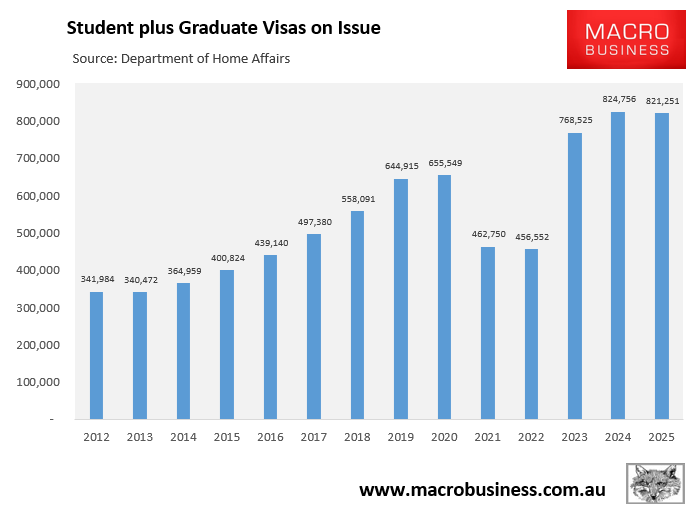
As a result, around 3% of the nation’s population was on either a student or graduate visa in Q2 2025.
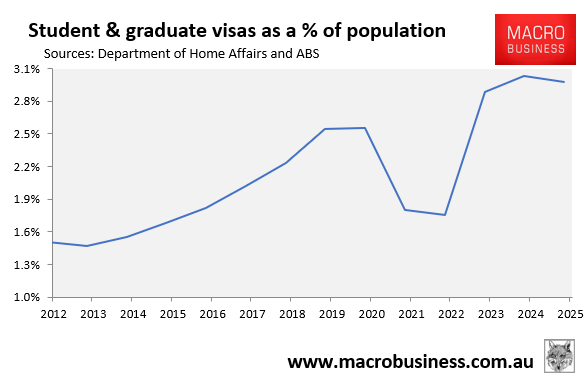
The above figures do not include the approximately 100,000 students on bridging visas.
The explosion in international students has raised major concerns about the erosion of pedagogical standards at Australian institutions.
This erosion opf standards includes mass cheating across Australia’s universities:
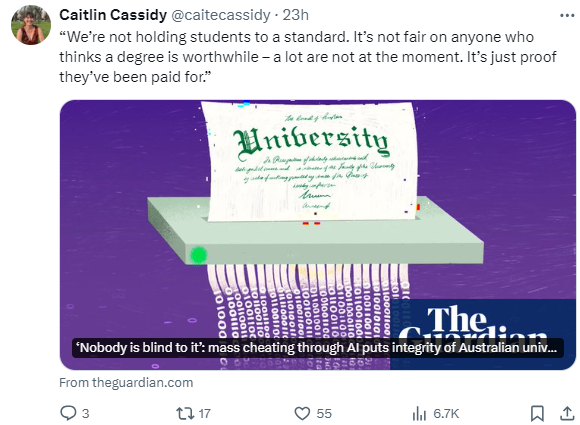
Academics working at Australia’s universities being precluded from failing poorly performing international students because it risks revenue:
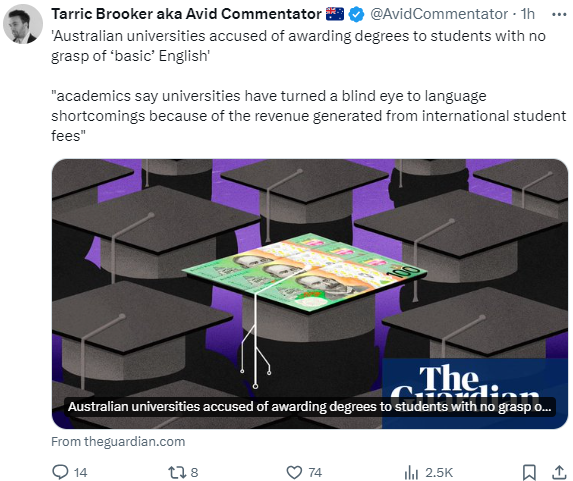
Tutorials at leading Australian universities being held in other languages:
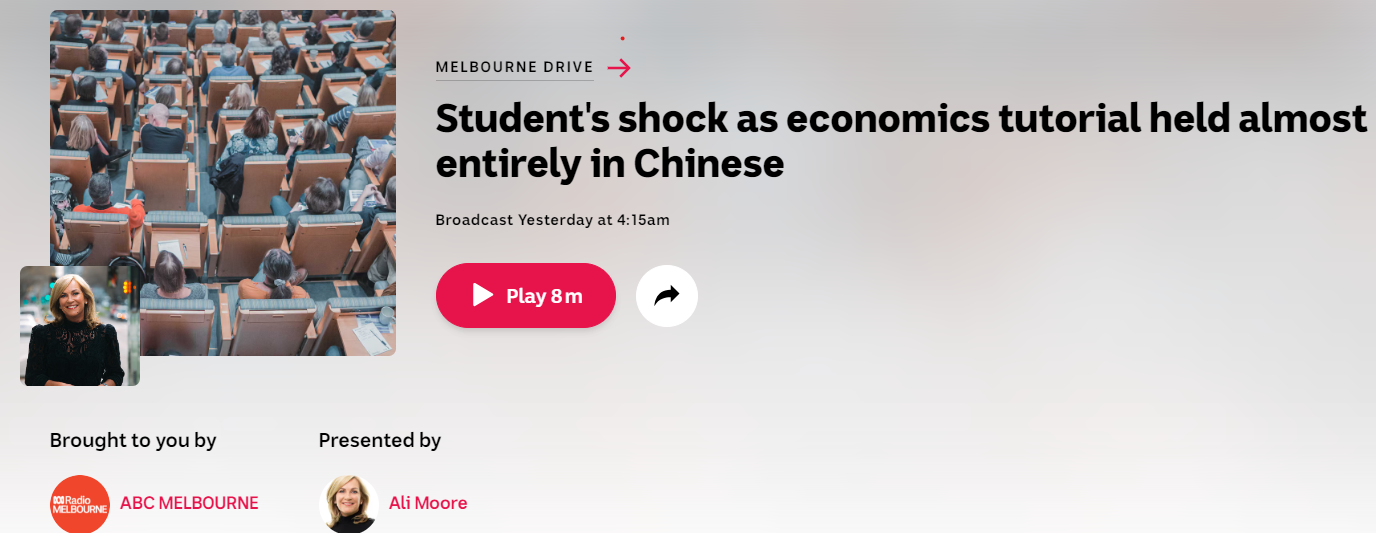
Recently, the Albanese government increased the planning level for international students by 25,000 places per year to 295,000.
The Albanese government also watered down English language requirements for visa holders seeking entry to Australia.
In response to the changes, chief lobbyist Phil Honeywood, CEO of the International Education Association of Australia (IEAA), declared that the sector is ready to pick up other countries’ student scraps:
“Australia’s been very fortunate that other countries we compete against, particularly Canada, Donald Trump’s USA now and the UK are also winding back on international student recruitment”, he said.
“And therefore when students are thinking which country to go and study at, they’re obviously seeing that Australia is in many cases the least worst when it comes to their ability to access education”.
Meanwhile, international students with sound English skills are starting to complain about being dragged down by international students with poor English-language proficiency and have called for an increase in entry standards:
“Furious students have blasted universities for enrolling Chinese internationals ‘who can’t speak a word of English,’ claiming they are dragging down grades”, the Daily Mail reports.
“They claimed they were shocked to find some Chinese classmates had ‘very low English skills,’ despite strict visa and entry requirements”.
‘There’s this group of Chinese international students in my class who cannot and refuse to speak English. When the lecturer asks them something they just stare blankly at them then smile and giggle with their mates”, a Thai student complained.
“‘I’m an international student myself and I feel so unfair that I have to do English proficiency tests before stepping foot into this country and then I see these idiots are sitting in the same class as me”, he said.
“The RMIT student said a friend was lumped with a group member who ‘didn’t even know the topic’ and simply pasted ‘unedited text generated by ChatGPT’ into assignments”…
“But I just wish the government and universities would hold higher standards”, the student said. “Better students mean better graduates, and a better reputation for Australia”.
“Sydney engineering student Peter James Cruz, who said he has often been forced to ‘carry’ group projects because some peers cannot communicate in English”.
Australian policymakers should be aiming to recruit a smaller pool of high-quality (authentic) students instead of continually lowering standards to attract more international students of doubtful quality.
Quality could be improved via the following types of reforms:
- Significantly raising English-language requirements and requiring prospective students to sit entrance exams before being admitted to study in Australia.
- Significantly rising financial requirements, including the obligation to deposit monies into an escrow account before landing in Australia.
- Limiting the number of hours that overseas students can work and removing the direct link between study, job, and permanent residency.
- Allowing only the best graduates to obtain graduate visas.
- Allowing only postgraduate international students to bring family members.
- Because Australian universities are non-profit corporations that do not pay taxes, placing a levy on international students to ensure that Australians benefit financially from the trade.
Universities should also be obligated to provide on-campus housing for international students in proportion to the number of enrolled students to relieve pressure on the rental market.
Unfortunately, the Albanese government has taken the opposite approach by lifting the international student planning level by 25,000 and lowering English-language standards.

